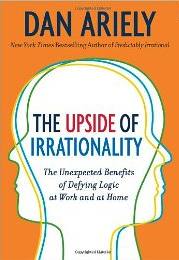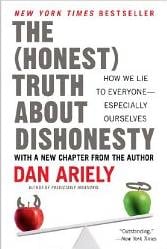By John Hunter, author of the Curious Cat Management Improvement Blog (since 2004).
One of the four cornerstones of Dr. Deming’s management system is an understanding of psychology. Dr. Deming continued to learn and adapt based on the latest research and what to continually improve his ideas on management. To stay true to his vision, we need to continually improve our understanding based on new knowledge.
Dan Ariely, Professor of Psychology and Behavioral Economics at Duke University, continues to produce valuable insights for managers on understanding human psychology. Managers should be learning from him to improve the management of the human systems in their organization and in working with customers, suppliers and other stakeholders. We frequently have issues in our organizations that grow out of faulty theories about how people think (often based on beliefs of much more coldly rational thought than the research shows is really found in people).
Dan Ariely recently responded to questions on Reddit with some interesting quotes. He described himself as . And his quotes are backed with very good research – details on the research can be found in his books and online.
What was the one thing that surprised you the most in your studies?
Dan Ariely: The ability of people to rationalize. In one study, we gave people a chance to cheat — which they took, and very quickly afterwards, they believed their own lies.
The tendency for us to rationalize is important to keep in mind as you manage: and remember to keep it in mind about yourself. The easiest way to improve based on this knowledge is to greatly reduce how much you rationalize decisions (often decisions to avoid having to try and improve things when doing so will be uncomfortable), trying to get others to change is hard. If you are aware of this strong human tendency however, you can perhaps question whether decisions are truly wise, or if maybe they are the result of rationalization.
Can you comment a little bit on the rise of behavioral economics and where you see it going in the future?
Dan Ariely: I am hoping that behavioral economics will become a path for applying all of social science into real decisions. I’m hoping it would take input from psychology, sociology, anthropology, philosophy, and of course economics, and impose the experimental method to test which solutions are most promising.
Behavioral economics has been pursuing better evidence of what people actually do. To me it is echoes the theory of knowledge in Deming’s management system as well as the importance of real evidence (revealed preference versus stated preference, for example).
Dan teaches an online course via Coursera that you may take for free: A Beginner’s Guide to Irrational Behavior.
Related: DisHonesty – A Documentary Feature Film – The Neuroscience of Deming – What Really Motivates Us? – The Trouble with Incentives: They Work




